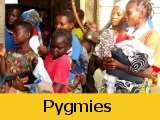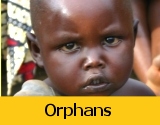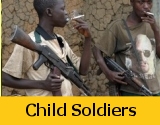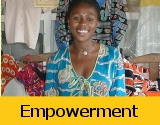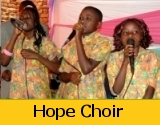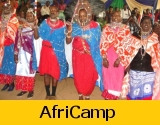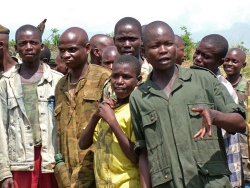 |
|
The long and brutal conflict in the DRC has caused
massive suffering for civilians, with estimates of millions dead
either directly or indirectly as a result of the fighting. There
have been frequent reports of weapon bearers killing civilians,
destroying property, committing widespread sexual violence, causing
hundreds of thousands of people to flee their homes or otherwise
breaching humanitarian and human rights law. An estimated 200,000
women have been raped. Few people in the Democratic Republic of
the Congo (DRC) have been unaffected by the armed conflict.
A survey conducted in 2009 by the ICRC and Ipsos
shows that three quarters (76%) of the people interviewed have been
affected in some way-either personally or due to the wider consequences
of armed conflict. In 2003, Sinafasi Makelo, a representative of
Mbuti pygmies, told the UN's Indigenous People's Forum that during
the war, his people were hunted down and eaten as though they were
game animals. In neighbouring North Kivu province there has been
cannibalism by a group known as Les Effaceurs ("the erasers") who
wanted to clear the land of people to open it up for mineral exploitation.
Both sides of the war regarded them as "subhuman" and some say their
flesh can confer magical powers
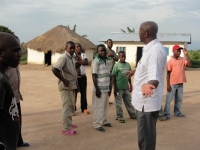 |
CERAO is responsible for the running
of a rehabilitation camp for demobilized child soldiers in the
outskirts of Beni. This camp, often termed “The Village”,
has been established to receive approximately 50 children, boys
and girls, but the situation has at times demanded twice that
number. |
|
|

